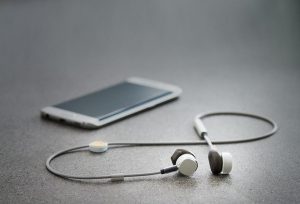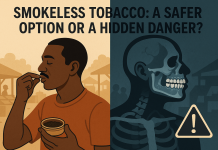About 50% of people within the ages 12-35 are exposed to dangerous levels of sound from their MP3 players, phones and other audio devices. This statistic simply implies that hearing damage in teenagers and young adults is on the increase. The bad news is that hearing damage caused by noise is irreversible and can lead to problems in one’s quality of life including difficulty understanding your loved ones and tinnitus (a high-pitched ringing).
Does this mean that we have to stop listening to our favourite tunes in order to “escape” hearing loss? Not really. Even if that was the only way out, would you comply?
 There is actually a way to listen to the tunes you love and not need a hearing aid a few years down the line especially if you are using earphones. This is because what experts describe as “unsafe listening level” really depends on how you long you are listening. According to the WHO, 85 decibels is the highest safe exposure level when you are listening for a period of 8 hours or less; even that is really loud. That is roughly the volume of a blender or an alarm clock. Now if you were to crank up an MP3 player to its maximum volume in order to get that “feel”, you could listen for a maximum period of 5 minutes before you risk hearing loss because it is equivalent to 102 decibels (the equivalent of a jackhammer). The improper use of earphones could be very harmful to your health.
There is actually a way to listen to the tunes you love and not need a hearing aid a few years down the line especially if you are using earphones. This is because what experts describe as “unsafe listening level” really depends on how you long you are listening. According to the WHO, 85 decibels is the highest safe exposure level when you are listening for a period of 8 hours or less; even that is really loud. That is roughly the volume of a blender or an alarm clock. Now if you were to crank up an MP3 player to its maximum volume in order to get that “feel”, you could listen for a maximum period of 5 minutes before you risk hearing loss because it is equivalent to 102 decibels (the equivalent of a jackhammer). The improper use of earphones could be very harmful to your health.
What is my point exactly?
Pretty simple. We are currently moving towards a period where a vast majority would either be deaf or at best need hearing aids. If we don’t watch our lifestyle as it relates to how we use our personal audio devices, hearing loss will be a number 1 problem among adults. So, for your own sake turn down the volume of that device you are listening to.
Yes! Do it now!










What’s up Dear, are you truly visiting this website daily,
if so then you will without doubt get fastidious experience.
You really make it seem so easy together with
your presentation however I in finding this matter to be really something
that I feel I’d never understand. It seems too complicated and very large for
me. I am having a look ahead in your subsequent submit, I will try to get the dangle of it!
Thank you for another informative site. Where else may I get that kind of information written in such a perfect method?
I’ve a undertaking that I’m just now running on, and I’ve been on the
glance out for such info.
We absolutely love your blog and find nearly all of your post’s
to be exactly I’m looking for. Would you offer guest writers to write content for yourself?
I wouldn’t mind publishing a post or elaborating on a lot of
the subjects you write in relation to here. Again, awesome web site!
I am really impressed with your writing skills and also with the layout on your weblog.
Is this a paid theme or did you customize it yourself? Either way keep up the
excellent quality writing, it is rare to see a nice blog like this one today.
Excellent post. Keep posting such kind of information on your page.
Im really impressed by it.
Hey there, You have done a great job. I will definitely digg it and
individually suggest to my friends. I am sure they
will be benefited from this site.
Highly energetic blog, I enjoyed that bit. Will there
be a part 2?